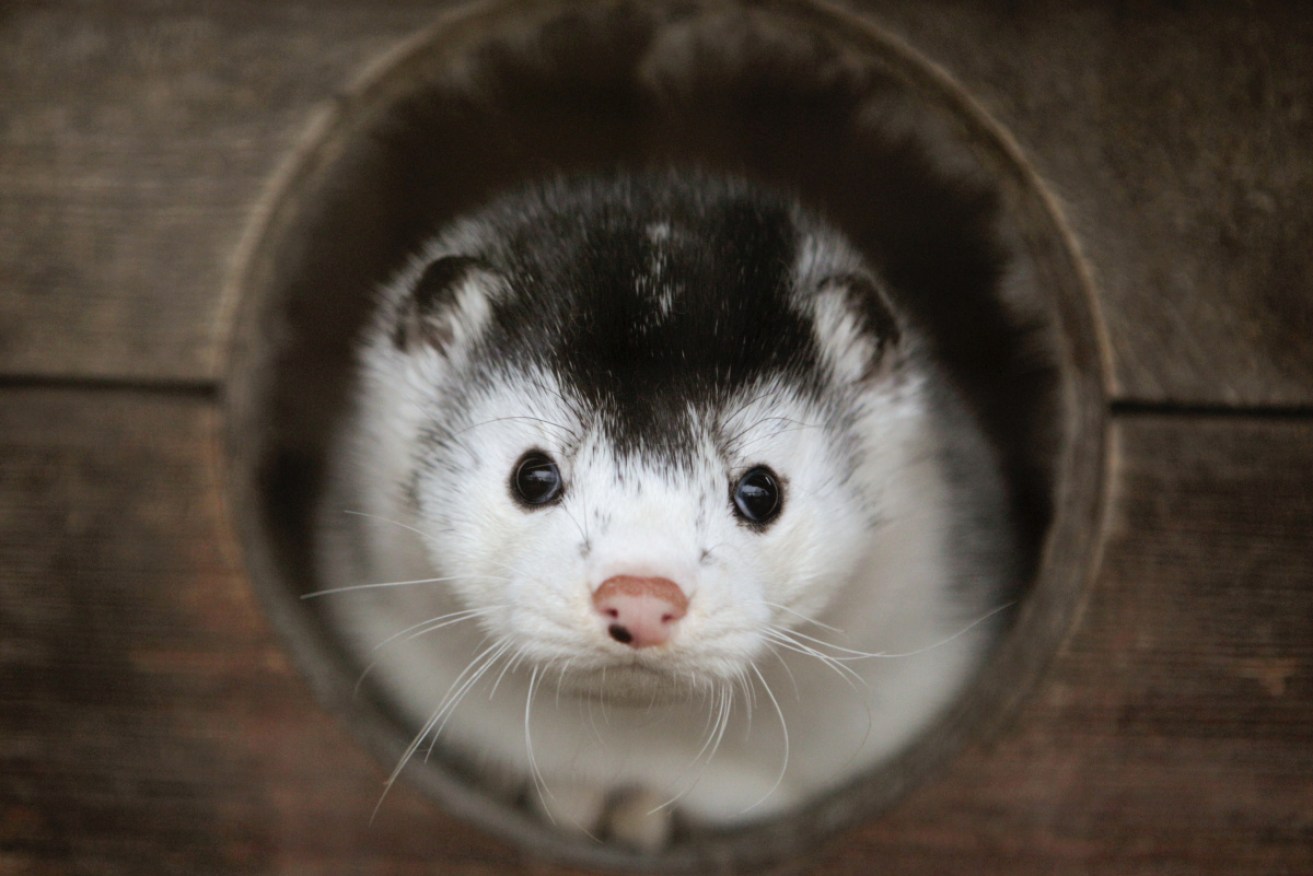Scientists eye minks link in Spain, Dutch virus outbreaks

A mink looks out of its cage at a fur farm near Kalinkovichi, Belarus. Photo: Reuters
Coronavirus outbreaks at mink farms in Spain and the Netherlands have scientists digging into how the animals got infected and if they can spread it to people.
In the meantime, authorities have killed more than a million of the semi-aquatic mammals at breeding farms in both countries as a precaution.
The virus that first infected people in China late last year came from an animal source, probably bats, and later spread from person to person, as other coronaviruses had before.
Some animals, including cats, tigers and dogs, have picked up coronavirus from people but there hasn’t been a documented case of animals spreading it back.
Coronavirus outbreaks at mink farms in Spain and the Netherlands have scientists digging into how the animals got infected and if they can spread it to people. https://t.co/PkB2O3x4jw
— The Associated Press (@AP) August 2, 2020
The outbreaks among the minks on farms in the Netherlands and Spain likely started with infected workers, although officials aren’t certain.
But it also is “plausible” some later caught the virus back from the minks, the Dutch government and a researcher said, and scientists are exploring whether that was the case and how much of a threat it might be.
The outbreak at the Spanish mink farm near La Puebla de Valverde, a village of 500 people, was discovered after seven of 14 employees tested positive in late May.
Two others were infected even after the operation was shut down.
More than 92,000 minks were ordered killed at the farm in the Aragon region of north-eastern Spain, with nine out of 10 animals estimated to have contracted the virus.
SARSCoV2 in farmed mink in the Netherlands. How it started https://t.co/Nj7aSv4wrz
— Wim van der Poel (@WimvanderPoel1) June 13, 2020
After the Dutch outbreaks began in April, Wageningen University veterinarian Professor Wim van der Poel, determined the virus strain in the animals was similar to the one circulating among humans.
“We assumed it was possible it would be transmitted back to people again,” he said, and that’s what appeared to have happened with at least two of the infected workers.
Richard Ostfeld, a researcher at New York’s Cary Institute of Ecosystem Studies, said that if confirmed, these would be the first known instances of animal-to-human transmission.
“With the evidence for farmed mink-to-human transmission, we definitely need to be concerned with the potential for domesticated animals that are infected to pass on their infection to us,” Ostfeld said.
-AAP








